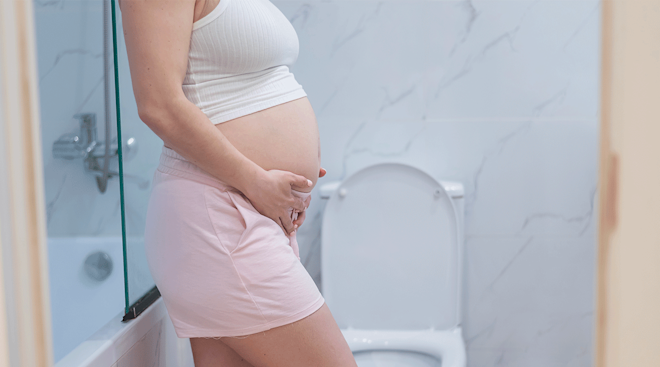Constipation is a common issue during pregnancy that can impact women due to hormonal changes, altered diet, and the physical effects of a growing baby. While it may be uncomfortable, there are safe and effective methods to support digestive health during this time. This article provides solutions to address constipation during pregnancy, and includes ways to alleviate the related discomfort of hemorrhoids.
Why Constipation Occurs in Pregnancy
During pregnancy, hormonal changes can slow down digestive processes, potentially leading to constipation. Additionally, the pressure from the expanding uterus on the intestines may contribute to difficulties in bowel movements. Dietary adjustments, reduced physical activity, and increased iron intake through prenatal vitamins can also affect digestion.
Dietary Adjustments for Digestive Health
Diet plays a key role in supporting regular bowel movements. Including a variety of nutrient-rich, high-fiber foods in daily meals can often provide relief from constipation without the need for additional intervention. Pregnant women may benefit from the following:
Increase Fiber Intake: Foods such as whole grains, fruits, vegetables, and legumes are natural sources of fiber. Including these foods regularly may help maintain smooth digestion.
Stay Hydrated: Drinking adequate water throughout the day helps prevent dehydration, which can exacerbate constipation. Clear fluids, such as water and broth, are suitable options.
Focus on Small, Frequent Meals: Eating smaller portions more frequently can reduce the strain on your digestive system and may contribute to improved digestion.
Physical Activity as a Supportive Measure
Engaging in gentle physical activity can complement dietary strategies to address constipation. Pregnancy-safe exercises such as walking or prenatal yoga can promote healthy digestion and improve blood flow throughout the body. Regular movement may help to naturally encourage bowel activity and alleviate discomfort.
Safe Over-the-Counter Remedies
If dietary changes and physical activity are not sufficient to improve constipation, there are pregnancy-safe remedies available. Stool softeners, such as those based on docusate sodium, are considered safe for use during pregnancy to temporarily ease discomfort. Fiber supplements, such as psyllium husk or methylcellulose, are another option for additional dietary support. These supplements may help increase stool bulk and encourage movement through the intestines, offering relief from constipation.
How to Manage Hemorrhoids Associated With Constipation
Hemorrhoids, swollen veins in the rectal area, may arise as a result of straining during bowel movements. While they can cause discomfort, there are methods to manage and minimize their occurrence:
Prevent Straining: Avoiding prolonged sitting on the toilet and resisting the urge to strain can reduce pressure on the rectal area.
Use Warm Water: A sitz bath may provide soothing relief for irritation or discomfort caused by hemorrhoids.
Topical Treatments: Certain over-the-counter creams or wipes may offer targeted relief for symptoms.
Take Control of Your Digestive Health During Pregnancy
Constipation and hemorrhoids are common but manageable experiences during pregnancy. With dietary adjustments, gentle movement, and appropriate remedies, it is possible to mitigate discomfort and support digestive health. Consult with your healthcare provider for additional information and to address persistent issues, explore safe solutions, and find relief during this special time.







